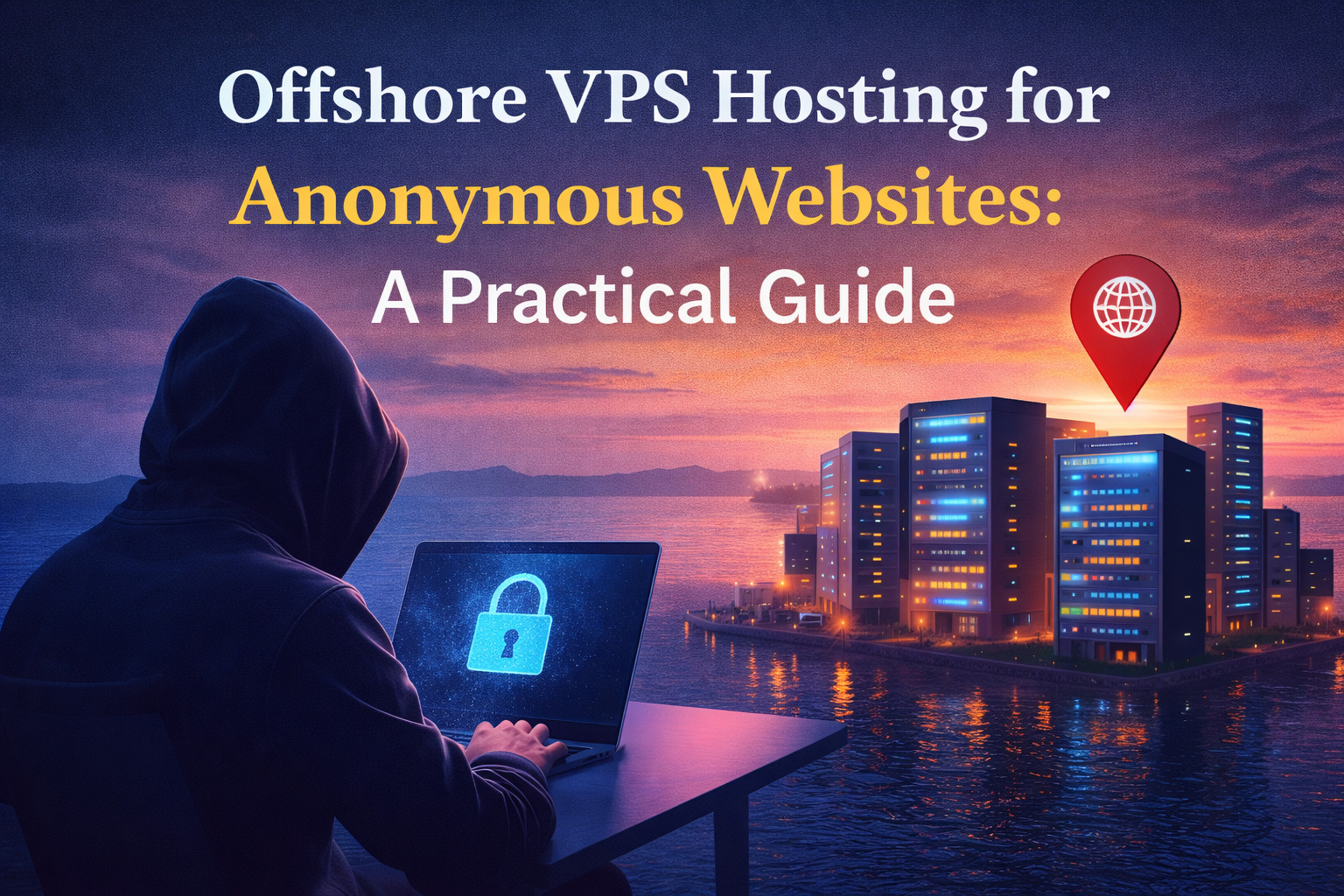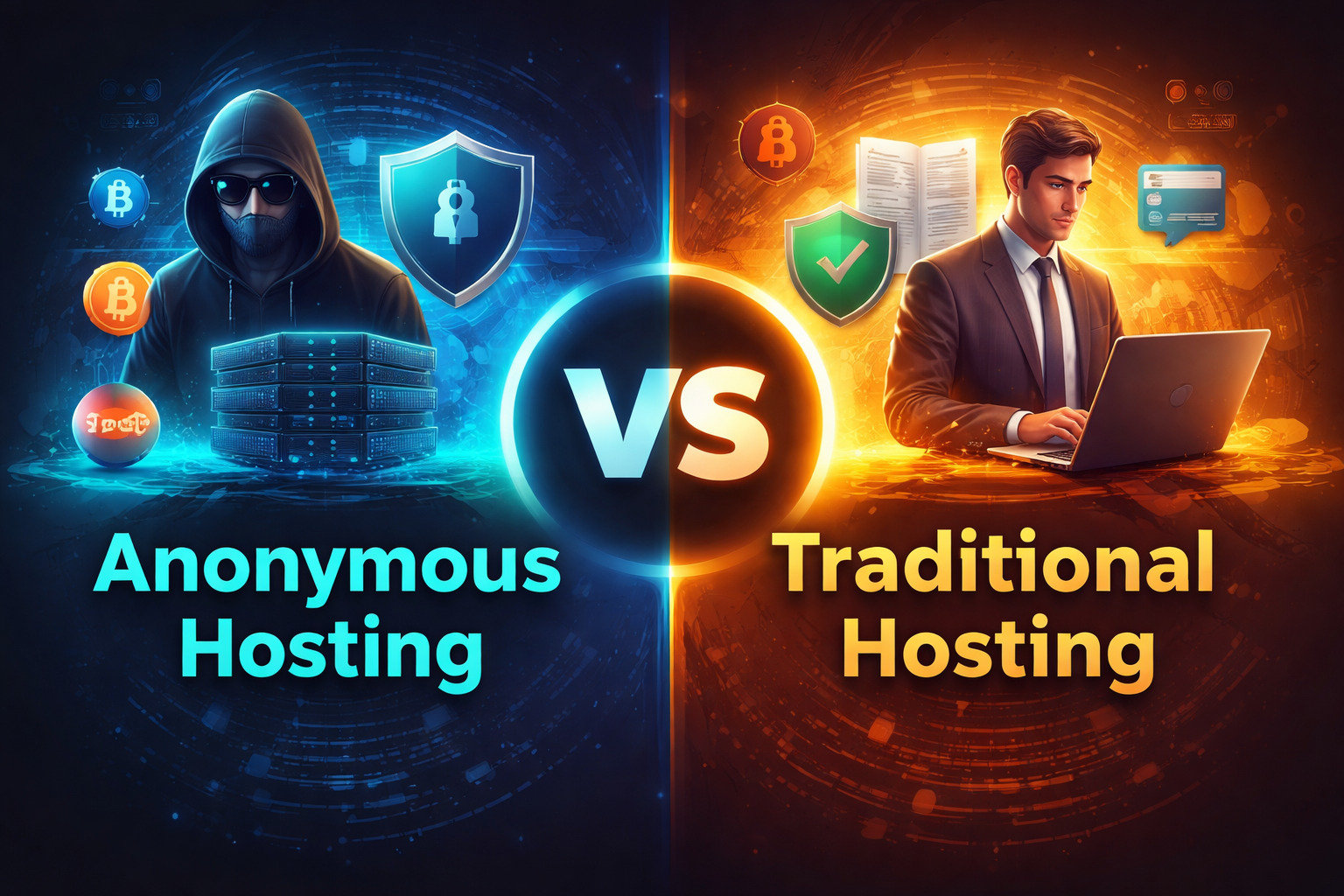What is Offshore Web Hosting and Its Benefits? A Complete Guide for 2025

- October 16, 2025
- 0 Comments
In today’s digital world, having a website isn’t just about being online—it’s about being secure, reliable, and free to operate. With rising privacy concerns, cyber threats, and strict content regulations, many businesses and individuals are looking for offshore web hosting as a smart solution.
But what exactly is offshore hosting? How does it work, and why are so many website owners choosing it? In this guide, we’ll explain everything in simple, easy-to-understand language, so anyone can follow along.
Introduction: Why Offshore Hosting is Important
Every website needs a home on the internet, which is where web hosting comes in. Your web host stores your website files and ensures your site runs smoothly for visitors. Most people use local or domestic hosting, where the servers are in the same country as the website owner.
However, local hosting can sometimes have downsides:
- Privacy concerns—your data may be subject to local laws
- Legal risks—websites can be taken down for content restrictions
- Performance issues—websites may be slower for global audiences
Offshore web hosting solves many of these problems. By hosting your website in another country, you can enjoy:
- Better privacy and security
- Freedom from local censorship
- Legal protections in favorable jurisdictions
- High performance for visitors around the world
This makes offshore hosting a popular choice for bloggers, businesses, e-commerce platforms, and even websites in sensitive industries like cryptocurrency, adult content, or online gambling.
What is Offshore Web Hosting?
Offshore web hosting means hosting your website on servers in a foreign country. These servers are operated by providers in jurisdictions with strong privacy laws, favorable regulations, or fewer content restrictions.
How It Works
Hosting offshore works almost the same as domestic hosting:
- Domain Registration – You register a website domain.
- Select a Hosting Provider – Choose an offshore hosting company that suits your needs.
- Server Storage – Your website files, databases, and applications are stored on servers in the foreign country.
- Global Access – Visitors from anywhere in the world can access your website.
The main difference is privacy, security, and legal protection, which are often stronger in offshore hosting countries.
Example Scenarios
- A political blogger in a country with strict censorship wants their website accessible worldwide.
- A cryptocurrency platform needs to protect sensitive user data from local regulations.
- An international e-commerce site wants fast, reliable access for customers in multiple countries.
Key Features of Offshore Hosting
Offshore hosting is more than just hosting your site in another country. Some of its key features include:
- Enhanced Privacy – Many offshore hosting providers do not require extensive personal details.
- Freedom of Content – Host material that may be restricted in your country.
- Legal Protection – Hosting in a country with favorable laws can protect your website from legal challenges.
- Advanced Security – Many offshore hosts offer encryption, DDoS protection, and automatic backups.
- High-Quality Infrastructure – Offshore servers are often fast, redundant, and reliable.
Benefits of Offshore Web Hosting
Now let’s break down the main benefits in plain language.
1. Stronger Privacy and Anonymity
Privacy is a big reason people choose offshore hosting. In countries like Switzerland, Panama, or Iceland, providers often allow you to host your website without giving away a lot of personal information. This helps protect your identity and sensitive business information.
2. Freedom from Local Censorship
Some countries block or restrict certain types of content. Offshore hosting allows your website to remain accessible without restrictions. This is especially useful for:
- Political blogs and activist platforms
- Adult content websites
- Cryptocurrency or gambling platforms
3. Legal Protection
Hosting your website in a country with strong privacy and free speech laws can reduce legal risks. For example, news websites or activist platforms can operate safely without fear of local authorities shutting them down.
4. Enhanced Security
Security is a major advantage of offshore hosting. Many providers offer:
- DDoS protection to prevent attacks that can crash your website
- Encrypted data storage to keep your files safe
- Automatic backups to recover your website quickly if something goes wrong
5. Cost-Effective Solutions
Contrary to what many think, offshore hosting can be affordable. Countries with lower operational costs often offer high-quality hosting at competitive prices, whether you need VPS, dedicated, or cloud hosting.
6. Reliable Performance
Many offshore servers are in countries with advanced internet infrastructure. This ensures your website loads quickly and stays online for visitors worldwide. Combined with CDNs (content delivery networks), offshore hosting can be as fast as local hosting.
7. Flexibility for Sensitive Industries
Offshore hosting allows websites in restricted industries to operate without constant legal pressure. This is critical for businesses in crypto, adult content, gambling, or politically sensitive niches.
Popular Offshore Hosting Countries
Here’s a quick look at the best countries for offshore hosting:
| Country | Privacy & Data Laws | Content Freedom | Security | Popular Use Cases |
|---|---|---|---|---|
| Switzerland | Very strong | High | Excellent | Finance, Crypto, Legal |
| Panama | Strong | High | Good | Adult, Gambling, Business |
| Iceland | Strong | Very High | Excellent | Media, Activism, Research |
| Singapore | Moderate | High | Excellent | E-commerce, Startups |
| Netherlands | Strong | High | Excellent | General-purpose hosting |
These countries are popular because they combine privacy, legal protection, and strong technical infrastructure.
Who Should Consider Offshore Hosting?
Offshore hosting isn’t just for tech companies. Anyone who needs privacy, freedom, or protection can benefit. Examples include:
- Bloggers & Journalists – Avoid censorship and protect content.
- Businesses with Global Audiences – Ensure fast access for customers worldwide.
- E-commerce Platforms – Keep customer data safe.
- Activists & NGOs – Protect identities and sensitive information.
- Startups in Restricted Industries – Operate freely without regulatory interference.
Offshore Hosting vs Regular Hosting
| Feature | Regular Hosting | Offshore Hosting |
|---|---|---|
| Server Location | Domestic | Foreign Country |
| Privacy | Moderate | High |
| Legal Protection | Subject to local laws | Depends on foreign laws |
| Content Restrictions | May apply | Often minimal |
| Security | Standard | Advanced |
| Anonymity | Low | High |
| Cost | Varies | Often competitive |
When to Choose Offshore Hosting:
- You want privacy and anonymity
- Your content could face censorship
- You handle sensitive user data
- You want protection from local legal issues
How to Choose the Right Offshore Hosting Provider
Selecting the right provider is key to enjoying all the benefits of offshore hosting. Consider these factors:
- Jurisdiction – Check that the country has strong privacy and content freedom laws.
- Security – Look for DDoS protection, encryption, and backups.
- Infrastructure & Uptime – Ensure servers are reliable and redundant.
- Customer Support – 24/7 support is essential, especially internationally.
- Hosting Options – Check VPS, dedicated, or cloud options.
- Reputation & Reviews – Research feedback from other users.
LunarVPS offers high-performance offshore VPS hosting with strong privacy protections, excellent uptime, and expert support—perfect for businesses and individuals who want freedom and security.
Real-World Examples of Offshore Hosting
- Cryptocurrency Platforms – Require strong privacy and protection from regulations.
- Adult Content Websites – Need legal freedom to operate without local restrictions.
- Political & Activist Websites – Protect identities and maintain access worldwide.
- Global E-commerce Platforms – Ensure uptime and security for international customers.
- Research & Media Websites – Protect sensitive information and maintain freedom of expression.
Frequently Asked Questions (FAQs)
Q1: Is offshore hosting legal?
Yes. Offshore hosting is legal as long as your website follows the laws of the hosting country.
Q2: Can offshore hosting protect me from all cyberattacks?
No hosting solution is completely immune. However, offshore providers often have strong security measures like DDoS protection, encryption, and automatic backups.
Q3: Does offshore hosting affect website speed?
Not necessarily. High-quality servers combined with CDNs ensure your site performs well globally.
Q4: Which countries are safest for offshore hosting?
Switzerland, Iceland, Panama, Singapore, and the Netherlands are considered safe due to strong privacy laws and infrastructure.
Q5: Can I host sensitive data offshore?
Yes, but make sure your provider uses strong encryption and complies with privacy laws in the hosting jurisdiction.
Conclusion
Offshore web hosting is a smart choice for anyone who values privacy, freedom, and security online. It’s especially useful for websites in sensitive industries, businesses with global audiences, and content creators who want freedom from local restrictions.
By choosing a reputable offshore hosting provider like LunarVPS, you can ensure:
- Your website is secure and high-performing
- Your data is protected and private
- You have the freedom to publish and operate globally
Offshore hosting offers flexibility, security, and peace of mind in today’s digital landscape. Whether you are a blogger, business owner, or startup, offshore hosting opens doors to a safer and more accessible online presence.



